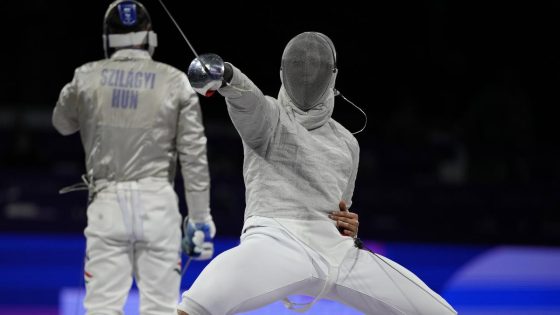Languishing in the opinion polls and in need of a game changer, Rishi Sunak arrived in Salford with his political back against the wall.
Keir Starmer, by contrast, was cushioned, it appears, by a substantial poll lead and keen to ensure it didn’t shrivel.
The psychology of that political backdrop played out on our screens: the Labour leader appeared more nervous, the Conservative prime minister keener to scrap.
I had been loitering outside the entrance to the studios as the motorcades arrived, the choreography of the moment a reminder to both leaders, not that they needed it, of the gravity of the moment.
This was not just another interview: executives from ITV were waiting in the doorway to offer their greetings and welcome.
Once inside, the microphones on, the studio audience in place and the opening music playing, the debate was under way.
The tone and tenure of it stood out: it was often angry, aggressive, personal, crude.
Quite something, I thought, given the character of the combatants, because neither are drawn to politics as performance for its own sake.
They are both instinctively drawn to detail and nuance.
But an hour and a bit of prime-time live television doesn’t offer much scope for that: it is a time for primary colours and punchy arguments.
Mr Sunak sought to hammer home his claim Labour would hammer you for more tax, a suggestion it took Mr Starmer some time to dismiss as false.
Mr Starmer constantly sought to put the Conservative record in office in the dock.
The differing world views of the two men were abundantly clear.
They starkly and without hesitation disagreed on private healthcare, private education and the UK’s membership of the European Convention on Human Rights.
In strict news terms, we didn’t learn anything definitively new.
But these debates are about taking arguments and character to a mass audience.
A poll by YouGov suggested perhaps the narrowest of victories for Rishi Sunak, by 51% to 49%.
One other strand of the polling by YouGov that caught my eye was the view of Conservative voters at the last general election in 2019.
You would expect them to be more sympathetic to the Tories than the average voter, but courting them is also clearly key to Sir Keir Starmer becoming prime minister.
YouGov’s poll suggested 85% of those voters felt Mr Sunak had performed best, 15% thought Mr Starmer had.
That would suggest, based on the debate alone, that support for the prime minister might be slipping away among that segment of the population less significantly than some Tories had feared.
But suggesting someone has won, of course, does not necessarily equate with changing how someone might choose to vote.
In short, for any on Rishi Sunak’s own side, doomladen about their prospects, their spirit was likely lifted by their leader’s willingness to fight.
For those backing Keir Starmer, the Salford scrap was a reminder their adversary hadn’t given up, but there was perhaps reassurance there wasn’t necessarily a transformatory game-changing moment here.
Source Agencies



